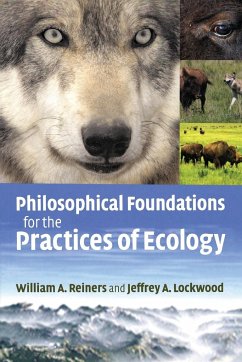Ecologists use a remarkable range of methods and techniques to understand complex, inherently variable, and functionally diverse entities and processes across a staggering range of spatial, temporal and interactive scales. These multiple perspectives make ecology very different to the exemplar of science often presented by philosophers. In Philosophical Foundations for the Practices of Ecology, designed for graduate students and researchers, ecology is put into a new philosophical framework that engages with this inherent pluralism while still placing constraints on the ways that we can investigate and understand nature. The authors begin by exploring the sources of variety in the practice of ecology and how these have led to the current conceptual confusion. They argue that the solution is to adopt the approach of constrained perspectivism and go on to explore the ontological, metaphysical, and epistemological aspects of this position and how it can be used in ecological research and teaching. Ecology is intuitively appealing, sociopolitically important and intellectually difficult. This book explains why ecology is so challenging. It describes the kind of philosophy that is required to incorporate the multiple lenses through which we seek to know nature.
'... a valuable introductory account of philosophy. The authors' arguments show clarity and are illustrated with simple examples. There is also a useful glossary of philosophical terms. I am sure many biology students will welcome this text as a guide through unfamiliar territory.' The Biologist








